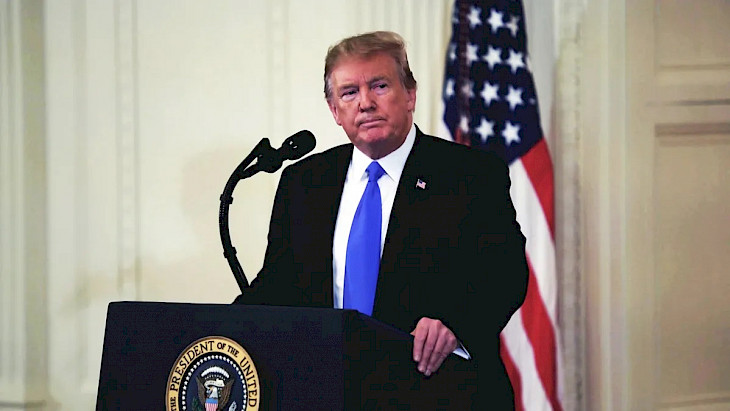Kazakhstan became the only country in the Central Asian region to receive a tariff warning from the U.S. President.
“When President Trump announced the introduction of tariffs in April, Kazakh officials were surprised to see their country on the list. Kazakhstan, a country rich in natural resources and bordering Russia and China, has only limited trade with the United States,” writes The New York Times. The exerts were published by Forbes.kz
The NYT recalls that over the past decade, American officials have consistently promised investment and support to Kazakhstan in an effort to encourage the country to open up its economy. Historically, the U.S. has been a major investor in the republic, especially in the oil and gas sector. American investment peaked in 2022, after which it began to decline.
In recent years, mining companies from the U.S. and other countries have been seeking ways to access Kazakhstan’s mineral deposits. The country has significant potential in the extraction of critical minerals and rare earth elements essential for the production of electric vehicles and other advanced technologies. Global supplies of these materials - which the U.S. urgently needs - are largely controlled by Chinese companies, the New York Times journalist emphasizes. In 2024, the Kazakh government issued 50% more exploration licenses than in the previous year.
“Many in the region viewed the U.S. as a potential counterbalance to their giant neighbors - China and Russia. Now, that goodwill may be shifting,” The New York Times quotes an analytical report from investment bank Teniz Capital. “While the U.S. is creating barriers, China and Russia are ready to seize the opportunity presented by Central Asia’s desire for stable partnerships.”
In 2025, the government of Kazakhstan also announced the discovery of a large rare earth deposit - the Kuiryktkol site in the Karaganda region. If confirmed, Kazakhstan will become one of the countries with the largest reserves of these elements, which are currently almost entirely dominated by China. At the same time, The New York Times notes that “Kazakhstan’s proximity to China and Russia puts it in a difficult strategic position. Hoping to avoid overdependence on either of its powerful neighbors, the country is seeking investors from Europe and North America. However, it is also trying not to alienate either Moscow or Beijing.”
Kazakhstan is actively deepening its economic ties with China. In June 2025, the two countries announced a cooperation agreement in areas such as energy, aerospace, agriculture, and e-commerce. Kazakhstan’s trade volume with China is already ten times greater than with the United States. After meeting with Chinese President Xi Jinping, Kazakh President Kassym-Jomart Tokayev declared that the relationship between the two nations had entered a “golden era,” emphasizing that Beijing had not imposed any political conditions on cooperation.
In the first five months of this year, Kazakhstan ran a trade deficit with the U.S., importing twice as many American goods as it exported. The New York Times cites analysis from a Kazakh investment bank: “According to Teniz Capital, the tariffs would affect Kazakhstani goods worth less than $100 million - about 5% of the country’s total exports.”
“Although Kazakh officials claim that the country’s key exports to the U.S. - uranium, ferroalloys, silver, and oil - are not subject to the new duties, Kazakhstan faces other threats from Washington as well. President Trump announced that the U.S. would impose a 50% tariff on copper imports — an important metal produced in Kazakhstan,” writes The New York Times.
Kazakhstan’s Ministry of Trade and Integration stated that it had submitted specific proposals and initiatives to the Trump administration aimed at improving mutual trade relations. According to the ministry, the U.S. is reviewing the proposals and will set a date for negotiations. In response to media inquiries, a White House spokesperson noted that Trump’s executive order on tariffs includes exemptions for certain sectors, but added that these goods could still be targeted by future duties.
Kazakhstan is also a partner of BRICS - a coalition of the world’s major developing economies including China, Russia, Brazil, India, and others. Trump has accused the bloc of pursuing anti-American policies and pledged to impose an additional 10% tariff on imports from countries aligned with BRICS.
Photo by: © Depositphotos/wadiifekar
CentralasianLIGHT.org
July 16, 2025

